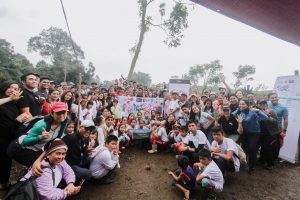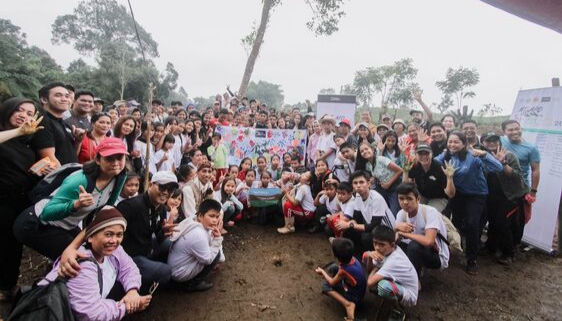
We practice poor environmental decisions such as conversion of forests habitats into agricultural and commercial purposes leading to species loss. This poor decision making can be greatly attributed to lack of education and engagement to biodiversity conservation initiatives. Thus, recently several attempts have been done to increase this engagement through ‘citizen science’.
According to National Geographic “Citizen science is the practice of public participation and collaboration in scientific research to increase scientific knowledge. Through citizen science, people share and contribute to data monitoring and collection programs usually done as an unpaid volunteer”.
In Mindanao, the first citizen science project is led by the University of Mindanao in partnership with National Geographic. Last year, a BioBlitz activity was conducted in Mt. Hamiguitan Range Wildlife Sanctuary where 70 students, teachers, forest rangers and scientists were involved to document the species of Mt. Hamiguitan.
This year, BioBlitzes were led by UM in partnership with Australian Global Alumni, San Pedro College, Philippine College of Technology, Catigan Elementary School, Catigan National High School and the Bagobo Tagabawa tribal council with funding from National Geographic.
The first BioBlitz event was conducted at UM campus on August 29, 2019 where more than 200 participants from different schools and industries participated. They learned the use of iNaturalist app through the National Geographic Society citizen science coordinator Dr. Carlos Velazco. iNaturalist is a citizen science app where anybody can upload wildlife observations to be made available to different scientists all over the world while BioBlitz is an intense period of biological surveying in an attempt to record all the living species within a designated area. The event was followed by a mini-BioBlitz led by National Geographic Explorer Dr. Analyn Cabras and Australian Global Alumni Dr. Milton Norman Medina.
The second BioBlitz was conducted with the Bagobo Tagabawa kids in Catigan Elementary School and Catigan National High School in Mt. Apo Natural Park where more than 200 kids, teachers, military men, parents, farmers, Australian Global Alumni, volunteers from different schools and scientists joined the activity to record the biodiversity in Mt. Apo Natural Park. Both activities have been greatly enjoyable for everybody where they were able to record species, learn about their names, and presented their data in front of their parents, local experts, and volunteers.

